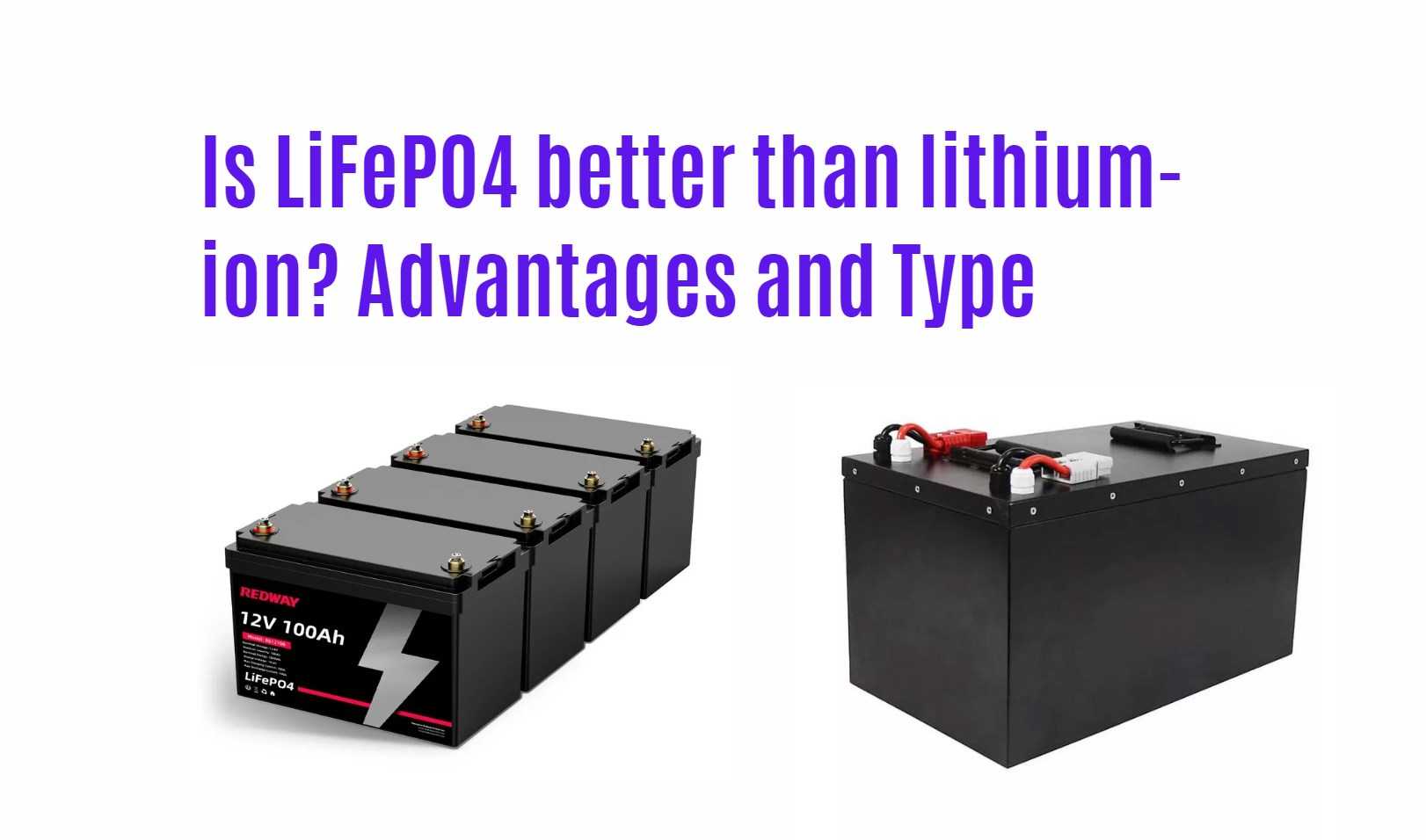From its inception, battery technology has advanced considerably. Lead-acid batteries have long dominated the market for larger applications, whereas lithium-ion batteries have long been the market leader for high energy density rechargeable batteries. But both are now facing competition from a new player in the battery market. They are LiFePO4 batteries, and we shall now examine their benefits.
LiFePO4 Battery Benefits
Compared to lithium-ion batteries, the LiFePO4 battery type provides a number of advantages and only a few drawbacks. The top benefits of LiFePO4 batteries are as follows:
Continual Performance
The performance of these batteries is incredibly reliable, which is their first key benefit over all other battery kinds. As the battery loses charge, the power output of other batteries, such as lithium-ion or lead-acid ones, is impacted. The power output with LiFePO4 batteries stays constant.
More rapid charging
When compared to a lithium-ion battery of equivalent capacity, the LiFePO4 battery charges far more quickly. Moreover, it is significantly quicker than other battery technologies. A LiFePO4 battery may be fully charged in around 2 hours on average. A considerably smaller smartphone battery, even with rapid charging turned on, requires 1-2 hours to fully recharge.
Increased Power Output
LiFePO4 batteries are renowned for delivering greater power output in more compact forms. They are utilized in applications that require a lot of power, such as electric automobiles. They are better options than conventional battery kinds because of this characteristic and the steady power supply.
Increased runtime
Like lead-acid batteries, the LiFePO4 batteries have a larger form factor. They deliver power in that size that is more effectively than lithium-ion batteries. They offer a longer runtime because of their excellent efficiency. It is quite advantageous to have both dependable performance and a longer power outage period. It’s because in the past, batteries with high outputs did not survive very long, and batteries that did last very long could not produce more power unless we combined several cells.
Environmentally responsible
Not the least of which is that they are environmentally friendly. They are not only highly durable but also much better for the environment because they can be recharged. Also, unlike other batteries, these do not leak chemicals, making them a superior option for protecting the environment.
Kind of lithium battery
It can be difficult to compare lithium-ion with LiFePO4 batteries at times. It’s because they utilise a lot of comparable things, like carbon and lithium, and operate on similar principals. The cathode material, however, is where the fundamental distinction lies. The electrolyte serves as a conduit for the movement of charges between the electrodes in lithium-ion batteries. The LiFePO4 batteries experience the same thing. Lithium-ion batteries can employ a variety of materials for their cathodes, whereas LiFePO4 batteries only use lithium iron phosphate.
While there may be some parallels, there are also some variances due to the different technologies, notably the fact that LiFePO4 batteries use more cells than lithium-ion batteries. It’s because a lithium-ion battery’s average cell voltage is 3.6 volts, but a LiFePO4 battery’s cell voltage is 3.3 volts. Compared to conventional lithium battery types, the LiFePO4 batteries have various advantages, such as:
Fewer self-explosions
The self-discharge rate is incredibly low here because of the differences in how these batteries are made. Only 2% of the LiFePO4 battery’s capacity is discharged on a monthly basis. This means that after a month of inactivity, a fully charged battery will only be reduced to 98%. The self-discharge rates of the other batteries are considerably higher.
Secure and solid
Lithium batteries have a reputation for igniting and exploding both when they are being charged and when they are sitting still. The fact that the LiFePO4 battery technology doesn’t blow up or catch fire gives it a significant advantage over all other lithium batteries. As a result of its structural and thermal stability, the LiFePO4 is regarded as the safest lithium battery available. It is a feature that the most popular type of lithium-ion battery is missing.
What is the lifespan of a LiFePO4 battery?
The typical user should expect their regular lithium-ion battery to last between 300 and 500 charge cycles, or about 2-3 years. The batteries in our smartphones, computers, and tablets typically experience performance loss over time, which is why.
Comparatively, the LiFePO4 can withstand up to 5000 charge cycles, which is a substantial improvement over the prior model. These batteries can easily last up to 10-15 years in terms of years. In light of their environmental friendliness, as mentioned above, it is quite beneficial.
What are the major functions that LiFePO4 batteries can be used for?
Because LiFePO4 batteries have such long lives, some applications can take advantage of all their advantages. The top ones consist of:
Energy-intensive Electric Cars
More power output and longer run periods are required for some power-hungry vehicles. Fishing boats, scooters, mopeds, and other such items are excellent candidates for LiFePO4 batteries.
Backup solar power systems
The LiFePO4 batteries could be the ideal choice for the solar power backup system that is already installed at your home. They can help you get the most out of the power from the sun because they are superior than conventional batteries in many ways.
Uses That Require More Power and Less Weight
You need to use some power equipment from a distance. You always need high power output, but you can never use greater load because it won’t be pleasant. The LiFePO4 batteries are a wise choice for all such power tools.
Employer-Side Applications
LiFePO4 batteries are suitable for industrial uses such as floor equipment and liftgates. Compared to all other lithium batteries, these are robust and secure, giving you dependability and security for industrial applications.
Gadgets.
The LiFePO4 batteries are a perfect alternative for radio equipment, emergency lights, flashlights, and electronic cigarettes due to their safety and output capacity, even though consumption is not as high.
Conclusion
It won’t be long until LiFePO4 batteries take over the rechargeable battery industry because to the benefits they have over the most widely used lithium-ion battery technology. They are far superior to both of the conventional battery kinds because they offer all the benefits, such as safety, environmental friendliness, higher performance, etc.





